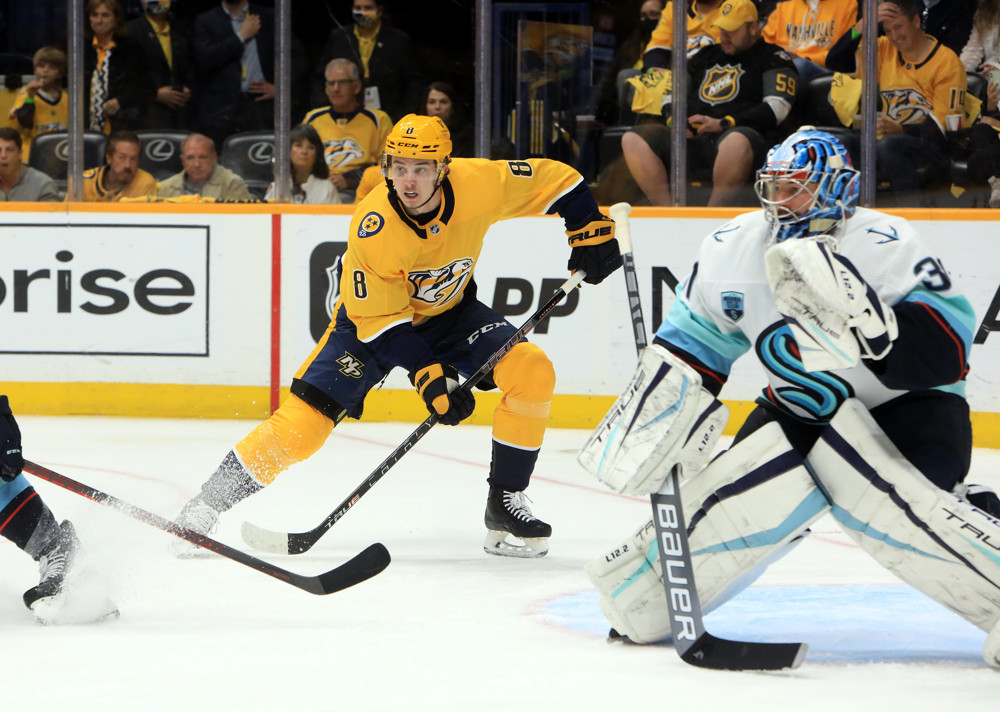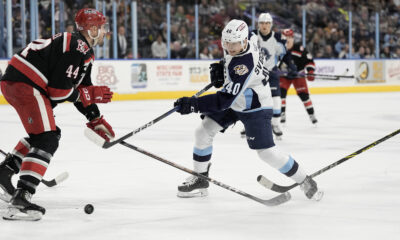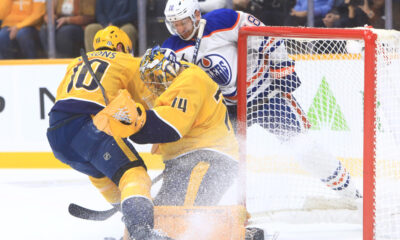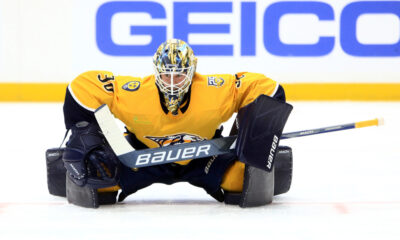Through this past offseason, it seemed as though the Nashville Predators had embraced their place as an aging team whose core of talent had used up their chances. GM David Poile bit the bullet and moved on from Ryan Ellis, Viktor Arvidsson and Calle Jarnkrok acquiring Cody Glass and Phillippe Myers plus multiple draft picks. All the restricted free agents were retained to maintain the pipeline of young talent. Many of the prospects, such as Egor Afanasyev, displayed significant growth through training camp and look to be knocking on the door of an NHL role.
But even with the turn towards youth questionable moves remained. Depth veterans like Ben Harpur, Nick Cousins and Rocco Grimaldi were either re-signed or not moved through the off-season. While Harpur was clearly outplayed through training camp by Jeremy Davies, it was Davies who was a final cut and Harpur who was in the Predators lineup for opening night. Philip Tomasino played opening night but was scratched in favor of Rocco Grimaldi for game two of the season. Nick Cousins received time on the second power-play unit over Tomasino, Jeannot or even Trenin. Now, after only the second game of the season, Cody Glass has been sent down to the AHL.
While the coach speak says Glass is part of the future (and I do believe he is) the move displays a continued uncertainty for where the Predators organization thinks they really are and what prospect development means. If the team thought Glass was NHL-ready coming out of camp, how has that changed after only two games? The same goes for Tomasino and being scratched after just one game. The insistence on playing veterans whose known ceiling is lower than the young talent available has been an issue in past years, whether it was Kevin Fiala or even back to Filip Forsberg. Sticking to the plan of the “competitive rebuild/transition” has been a consistent point of discussion coming into the ’21-22 season and if favoring veteran players over younger talent continues to take place then we will know that “competitive” is the more important term. However, if that carries forward, then the road back to being truly competitive may be longer than it seemed just a couple of weeks ago.

















